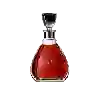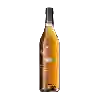
Domaine St SébastienEmpreintes Banyuls Blanc
This wine generally goes well with poultry, rich fish (salmon, tuna etc) or shellfish.
Food and wine pairings with Empreintes Banyuls Blanc
Pairings that work perfectly with Empreintes Banyuls Blanc
Original food and wine pairings with Empreintes Banyuls Blanc
The Empreintes Banyuls Blanc of Domaine St Sébastien matches generally quite well with dishes of rich fish (salmon, tuna etc), shellfish or spicy food such as recipes of rice with tuna and tomato, fish and shrimp wok with curry or lamb kebab.
Details and technical informations about Domaine St Sébastien's Empreintes Banyuls Blanc.
Discover the grape variety: Arruffiac
An old grape variety from the Adour valley, registered in the Official Catalogue of wine grape varieties, list A1. It should not be confused with the raffiat de Moncade, which originated in the same region and is also white.
Informations about the Domaine St Sébastien
The Domaine St Sébastien is one of of the world's greatest estates. It offers 12 wines for sale in the of Banyuls to come and discover on site or to buy online.
The wine region of Banyuls
Banyuls wines come from the South-eastern Part of Roussillon, in the south of France, in the lower Pyrenees, a few kilometres from the Spanish border. These naturally Sweet wines are consumed both as an aperitif and as a dessert. They come in a wide range of hues, from GoldenGreen (Banyuls Blanc) to Amber (Banyuls Ambré) to the intense garnet of the standard Banyuls Rouge. Unusually among the natural sweet wines of France, all Banyuls wines are made primarily from Grenache grapes of various colors.
The wine region of Languedoc-Roussillon
Languedoc (formerly Coteaux du Languedoc) is a key appellation used in the Languedoc-Roussillon wine region of southern France. It covers Dry table wines of all three colors (red, white and rosé) from the entire region, but leaves Sweet and Sparkling wines to other more specialized appellations. About 75% of all Languedoc wines are red, with the remaining 25% split roughly down the middle between whites and rosés. The appellation covers most of the Languedoc region and almost a third of all the vineyards in France.
The word of the wine: Right bank
In Bordeaux, it refers to the vineyards located on the right bank of the Gironde and Dordogne rivers, where the Merlot grape variety is dominant. These are the appellations of Saint-Emilion, Pomerol, Fronsac, etc.














